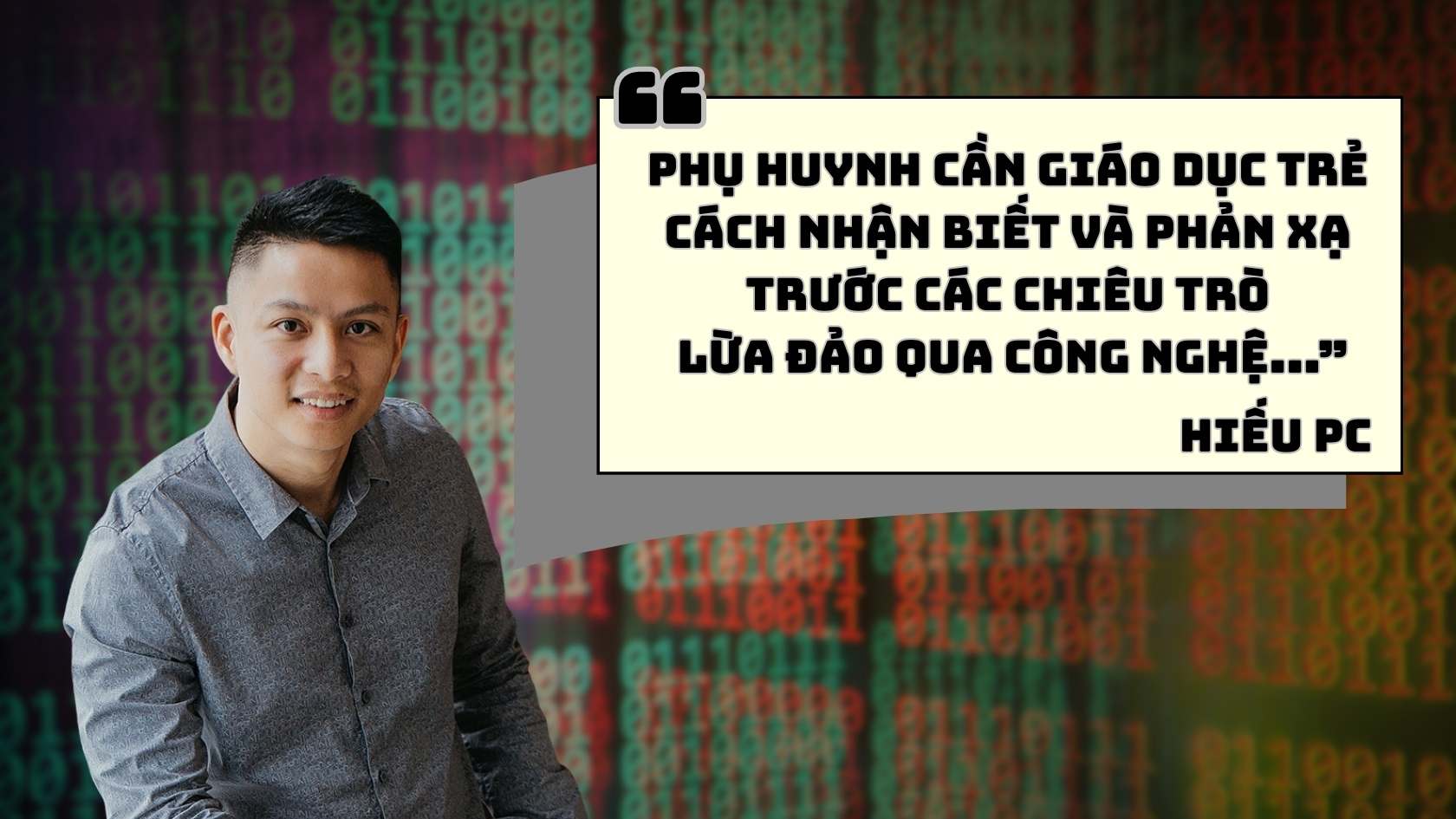A series of victims were blackmailed with sensitive clips
At the end of July, the case of a female student born in 2007 in Viet Hung ward (Hanoi) being forced to film a sensitive clip by a stranger to extort 300 million VND from her family received much public attention. According to information from the police, the subject called the victim via the Zoom application, asking him to declare his personal finances to "prove his innocence" in a money laundering case.

During the process of mental manipulation, the scammers asked the victims to delete social networking applications, only keeping Zoom to maintain communication, and at the same time giving compulsory orders such as taking off their clothes and filming sensitive clips. The clip was then used as a tool to blackmail the victim's family. Fortunately, the police quickly took action, rescued the female student at a motel and tracked down a group of subjects who were carrying out a blackmail plan.
Another incident occurred in An Giang province, when Phan Phu Vinh (born in 2000) used a private clip filmed with his ex-lover to blackmail and threaten the victim. Vinh not only sent the clip to his ex-girlfriend's relatives, but also asked her to give him 30 million VND; at the same time, forced him to meet her to control her. The incident was only prevented by the people detecting and reporting to the police in time.
These cases show that current technology crime tricks have far surpassed traditional tricks. Without needing to meet in person, bad guys can only get into trouble through video calls, fake voices, images of police cards, etc., causing a child to panic, believing that they are in trouble.
Sharing about this issue, Ms. Nguyen Thi Minh - a parent with a child studying in grade 9 in Hanoi expressed her concern: "My child is only 14 years old, too young to know what information is real and what is fake. Just as long as someone impersonates a police officer, saying that the child violates the law, the child can immediately believe it without daring to tell his parents. We are really worried and want to have more skills and knowledge to protect our children from increasingly sophisticated dangers online.
Equip children with reflex skills against scams
In an interview with Lao Dong, Associate Professor, Dr. Tran Thanh Nam - Vice Principal of the University of Education, Vietnam National University, Hanoi commented: The scammers are using very methodical and intentional psychological tricks, especially for students.
"They exploit the lack of legal knowledge, academic pressure, and panic-prone psychology of adolescents. When charged with crimes related to the law, students will easily lose control. If they are asked to keep a secret, disconnect from relatives and only use a communication tool - that is when children are isolated, easily lured and psychologically absorbed," Mr. Nam analyzed.
Regarding the solution, according to Mr. Ngo Minh Hieu (Hieu PC) - cybersecurity expert, Director of the Chong Lua Dao project - there are 3 things that parents need to do immediately to prevent similar incidents from continuing.

First of all, it is necessary to educate children how to recognize and reflect on technology scams. Children must understand that they absolutely do not trust anyone who asks to keep it a secret from their parents, including those who claim to be police officers or teachers. Sending sensitive photos and clips in any name is risky and must be rejected. When accused of something online, children need to be instructed to immediately report the reflection to adults, not to self-respect or hide it.
Along with that, parents need to build an open communication channel with their children. Regularly asking about online interactions will help the family detect signs of abnormalities early. When children share something worrying, it is important that parents should not scold or bully, but need to listen and support. At the same time, children should learn how to identify fake information, distinguish between real and fake in the digital environment.
In the end, the family could not take care of themselves alone. It is necessary to proactively coordinate with schools and propose organizing cybersecurity skills classes for students. Connecting with other parents to share warning situations is also an effective way to prevent early. When signs of risk appear, do not hesitate to seek advice and proper intervention from experts.










